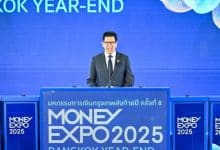Foreign investments bolster Thai economy with 58.9 billion baht boost

From January through July of this year, Thailand welcomed a foreign investment sum of 58.9 billion baht. A notable chunk of this influx originated from Japan, whose companies lavished the largest amount of capital on developing their businesses within Thai borders.
Estimates suggest that the Japanese investors led the pack with a total outlay of 19.9 billion baht. They were closely tailed by Singaporean enterprises who injected 12.9 billion baht into the Thai business sector. Additionally, Chinese and US firms put in 11.7 billion and 3.04 billion respectively, catalyzing foreign investments within the nation.
During this period, according to Thosapone Dansuputra, the director-general of the Business Development Department, the Foreign Business Committee has approved 377 investment applications. These approvals were given under the umbrella of the Foreign Business Act. This foreign investments figure denotes a striking 17% rise when compared to the same timeframe last year.
Nevertheless, it is worth noting that the total value of the investments plunged by 20% relative to the corresponding period of last year. Remarkably, these foreign investments have been a shot in the arm for Thai employment figures, creating jobs for 3,954 locals, a number representing a 9% increase or an additional 286 workers.
In terms of the number of applications for their respective investments, Japan topped the list with 84 applications, followed by the US with 67, Singapore with 61, China with 28, and Germany submitting 16.
Thosapone further divulged that the lion’s share of businesses that had their licences approved within the first seven months are aligned with the nation’s infrastructure development and investment promotion strategies. These policies aim to enhance Thailand’s standing as a formidable player in the competitive global market, reported Bangkok Post.
The director-general further shed light on the diversity of the businesses that have been sanctioned. Notable ones include the likes of petroleum drilling services in surveyed regions in the Gulf of Thailand; maintenance and repair services for offshore petroleum wells; an array of services related to electric railway projects such as design, procurement, installation, improvement, development, testing, and operation management.
Investments were also made in the construction and testing of natural gas pipelines, gas control stations, and accompanying onshore gas transmission systems facilities, as well as into software services that serve global businesses’ affiliates.
Thosapone also mentioned that 73 foreign investors expressed an interest in investments in the Eastern Economic Corridor (EEC), constituting 19% of all foreign investors. This corridor witnessed an investment influx of 12.3 billion baht, which translates to 21% of the total investment value.
The Japanese made the largest chunk of these investments valued at 5.37 billion baht in the EEC, followed by China and South Korea with 893 million baht and 287 million baht, respectively. Other investors, amounting to 25, pitched in with a combined total of 5.78 billion baht.
Latest Thailand News
Follow The Thaiger on Google News:


























